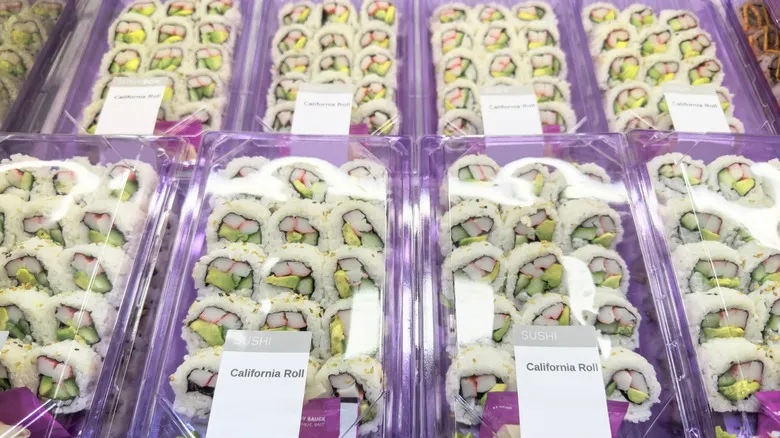While generally safe, consuming sushi is not without caveats

Whether you’re dining at a restaurant or picking up from a retailer, sushi can be a nutritious option, packed with healthy ingredients like vegetables, rice, and fish. However, eating fish does come with some risks. Like any other food, it can carry the potential for foodborne illnesses, and there are also concerningly high levels of mercury in many fish species. While enjoying sushi in moderation is generally safe, experts warn that excessive consumption of certain fish can lead to mercury poisoning, which may result in symptoms such as nervous system damage, memory problems, and organ failure. Those who are more vulnerable, such as children and pregnant individuals, might want to avoid it altogether. Nevertheless, the risk of mercury poisoning from tuna or other sushi is quite low if you eat a reasonable amount.
If prepackaged fish makes you uneasy, you can still savor the oceanic flavors of sushi without seafood—another way to sidestep potential mercury issues. Many grocery stores now offer plant-based veggie sushi options. For instance, you might try an avocado cucumber roll. Upscale stores like Whole Foods even feature fresh sushi counters where you can request vegan rolls and receive expert sushi-eating advice from their chefs.
Ultimately, your sushi preferences are a personal choice. With the assurance that you can safely enjoy your grocery store sushi habit—provided you follow basic food safety guidelines—the next step is to conduct your own taste test. So grab your chopsticks, pour some tamari, and discover which retailer’s rolls will become your new favorite affordable treat.
Recommended

The Popular Whole Foods Item You Should Avoid Buying

The Tell-Tale Sign The Seafood You're Buying Isn't Up To Standard

How Many Bananas Are There In A Single Pound?

When Shopping At The Grocery Store, Shop The Perimeter First
Next up

